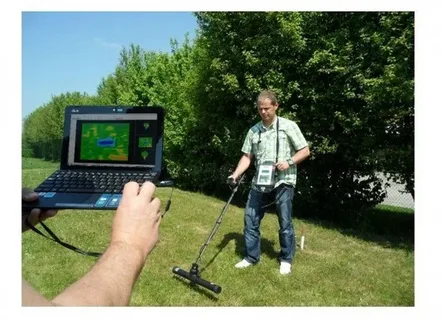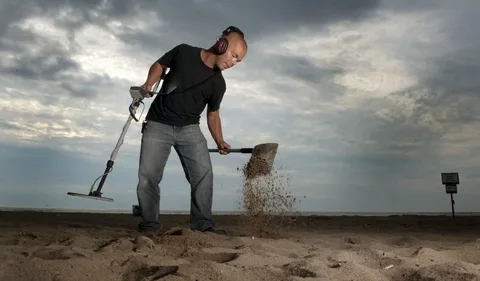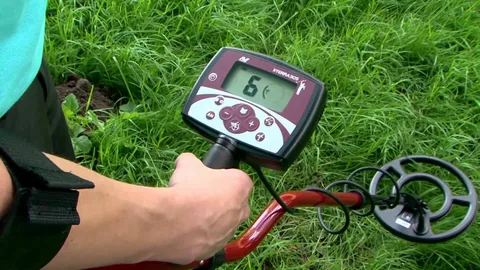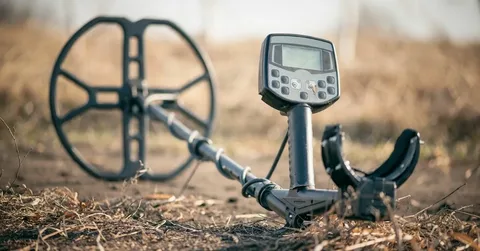Essential tools for soil investigation and drilling are crucial for accurately assessing soil quality and determining its suitability for various construction and engineering projects. These tools are essential for professionals معدات تنقيب 24 (27/11) working in the field of geotechnical engineering, as they provide valuable insights into soil composition, strength, and stability. By utilizing the must-have tools for soil investigation and drilling, engineers and geologists can make informed decisions about the design and construction of buildings, roads, and other infrastructure. In this article, we will explore the essential tools required for effective soil investigation and drilling, and discuss their importance in ensuring the success and safety of construction projects.
1. Soil augers: These handheld tools are used to extract soil samples from various depths for analysis. They come in different sizes and designs to accommodate different soil types and drilling conditions.
2. Core sampling tools: Core samplers are important for extracting intact cylindrical soil samples for detailed analysis. These tools are commonly used in geotechnical investigations to assess soil composition and properties.
3. Soil moisture meters: These devices are used to measure the moisture content of soil, which is crucial for assessing its suitability for construction or agricultural applications.
4. Ground penetrating radar (GPR): GPR equipment is utilized to map subsurface features and detect underground utilities or obstacles before drilling or excavation activities.
5. Cone penetration testing (CPT) equipment: CPT rigs and tools are used to measure the strength and properties of soil at various depths, providing valuable data for geotechnical and environmental investigations.
6. Drilling rigs: Different types of drilling rigs, such as hand augers, rotary drilling rigs, and percussion drills, are essential for accessing different soil layers and extracting core samples for analysis.
7. Soil pH testing kits: These kits are used to measure the acidity or alkalinity of soil, which is important for evaluating its suitability for specific planting or construction requirements.
8. Soil compaction testing equipment: Devices such as cone penetrometers or soil compaction meters are essential for assessing the density and strength of soil, particularly in construction and civil engineering projects.
ٍSee Also: Essential Marine First Aid Kits for Boat Captains: A Guide
The Importance of Soil Investigation and Drilling in Construction

Soil investigation and drilling are crucial steps in the construction process. By conducting soil investigations, engineers can determine the type and properties of the soil, which helps in making informed decisions for the design and construction of the building or infrastructure. This includes assessing the soil’s bearing capacity, stability, and potential for settlement. Drilling is used to collect soil samples at various depths, allowing for a detailed analysis of the soil composition and its suitability for the intended construction project. This information is essential for ensuring the safety, stability, and longevity of the structure. Additionally, it helps in identifying any potential hazards or challenges that may need to be addressed during the construction process. Overall, the importance of soil investigation and drilling in construction cannot be overstated, as it directly impacts the success and safety of the project.
Choosing the Right Equipment for Soil Investigation and Drilling

Performing soil investigation and drilling is crucial for various construction and civil engineering projects. The right equipment selection is essential to ensure accurate testing and data collection. Several factors should be considered when choosing the right equipment for soil investigation and drilling, including the type of soil, the depth of drilling required, and the specific testing needs. Different types of equipment such as augers, drill rigs, soil sampling tools, and testing instruments are available for these purposes. It is important to understand the specific requirements of the project and consult with experts to determine the best equipment for the job. Additionally, considering factors such as safety, efficiency, and accuracy is vital in choosing the right equipment for soil investigation and drilling.
ٍSee Also: Top Picks for Versatile Excavator Attachments
Key Tools for Soil Sampling and Analysis in Construction Projects

Soil sampling and analysis in construction projects require key tools such as soil augers for collecting soil samples at various depths, hand shovels for excavating larger soil samples, soil probes for taking samples without disturbing the soil structure, and soil moisture meters for measuring the water content in the soil. Additionally, soil pH meters, conductivity meters, and nutrient analysis kits are essential for analyzing the chemical and physical properties of the soil. These tools are crucial for ensuring the proper assessment of soil quality and composition, which is vital for the success of construction projects.
Understanding the Essentials of Geotechnical Drilling for Engineers
Must-Have Tools for Soil Investigation and Drilling

Understanding the Essentials of Geotechnical Drilling for Engineers is a comprehensive course that covers the fundamental principles and best practices of geotechnical drilling. It provides engineers with the knowledge and skills necessary to plan, oversee, and interpret drilling operations for various geotechnical projects. The course covers topics such as site investigation techniques, drilling equipment and methods, drilling fluid properties, safety considerations, and data analysis. Participants will also learn about the importance of drilling in geotechnical engineering and how it impacts project success. Overall, the course aims to equip engineers with the essential knowledge and expertise to effectively manage geotechnical drilling activities.
Exploring the Best Methods for Site Investigation and Soil Sampling
Exploring the best methods for site investigation and soil sampling is essential for any construction or development project. This process involves determining the condition of the soil, as well as any potential environmental hazards that may be present on the site. Some common methods for site investigation include groundwater testing, soil sampling, and geophysical surveys. These methods can help assess the suitability of the site for construction and identify any potential risks or challenges. Soil sampling involves taking samples of the soil at various depths to assess its composition, strength, and suitability for construction. These samples are then tested in a laboratory to provide more detailed information about the site’s soil properties. Overall, thorough site investigation and soil sampling are crucial for ensuring the success and safety of any construction project.
The Role of Rotary Drilling in Soil Exploration and Testing
Rotary drilling is a common method used in soil exploration and testing. This type of drilling involves a rotating drill bit that breaks up the soil as it is being drilled into the ground. The resulting soil samples can then be tested for various properties such as density, moisture content, and strength. Rotary drilling is often used to gather samples for geotechnical investigations, environmental assessments, and construction projects. It provides valuable information about the subsurface conditions and helps engineers and geologists make informed decisions about building foundations, earthworks, and other engineering projects. Overall, rotary drilling plays a crucial role in soil exploration and testing, and continues to be a widely used technique in the field of geotechnical engineering.
Essential Equipment for Groundwater Monitoring and Analysis
To conduct groundwater monitoring and analysis, essential equipment includes water level meters, groundwater sampling instruments (such as bailers or pumps), and water quality testing kits. Water level meters are used to measure the depth to the water table, while groundwater sampling instruments are used to collect water samples for analysis. Water quality testing kits typically include instruments for measuring parameters such as pH, conductivity, temperature, and various contaminants. Other important equipment may include dataloggers for recording water level and quality data, as well as protective gear such as gloves and safety goggles.
Advancements in Soil Investigation Technology for Construction Purposes
Soil investigation technology for construction purposes has advanced significantly in recent years. One major advancement is the use of ground-penetrating radar (GPR), which allows for non-invasive imaging of subsurface soil and rock layers. This technology provides valuable information on the soil’s composition, density, and moisture content, helping engineers to better understand its suitability for construction.
Another important development is the use of advanced geotechnical testing methods, such as cone penetration testing (CPT) and pressuremeter testing. These methods provide engineers with detailed data on soil strength, compressibility, and other important characteristics, allowing for more accurate and reliable foundation design.
Additionally, advancements in remote sensing and geographical information systems (GIS) have made it easier to gather and analyze large amounts of soil data from a distance. This has improved the efficiency and accuracy of soil investigations, ultimately leading to more cost-effective and sustainable construction projects.
Overall, advancements in soil investigation technology have greatly improved the ability of engineers to assess and understand the soil conditions at construction sites, leading to safer and more successful building projects.
ٍSee Also: Essential Gold Prospecting Tools: A Guide for Beginners
Streamlining Soil Sampling and Testing with Modern Tools and Techniques
Streamlining soil sampling and testing with modern tools and techniques involves utilizing technologies such as GPS and remote sensing to efficiently collect samples from various locations within a field. These tools help to ensure representative sampling and reduce time and labor costs. Additionally, advancements in laboratory testing equipment and techniques, such as near-infrared spectroscopy, allow for quicker and more accurate analysis of soil nutrient levels and properties. Overall, modern tools and techniques enable more efficient and effective soil sampling and testing, providing valuable information for optimizing agricultural production while minimizing environmental impact.
Investing in Quality Drilling Equipment for Effective Site Investigation
Investing in quality drilling equipment is crucial for effective site investigation. High-quality drills and equipment can help in obtaining accurate core samples and data, which is essential for making informed decisions during the geotechnical investigation process. High-quality drilling equipment is also more reliable and efficient, ultimately saving time and costs in the long run. Additionally, reliable equipment reduces the risk of accidents and breakdowns, ensuring a safe and productive work environment. Overall, investing in quality drilling equipment is an essential step for ensuring successful and effective site investigation.

اترك تعليقاً